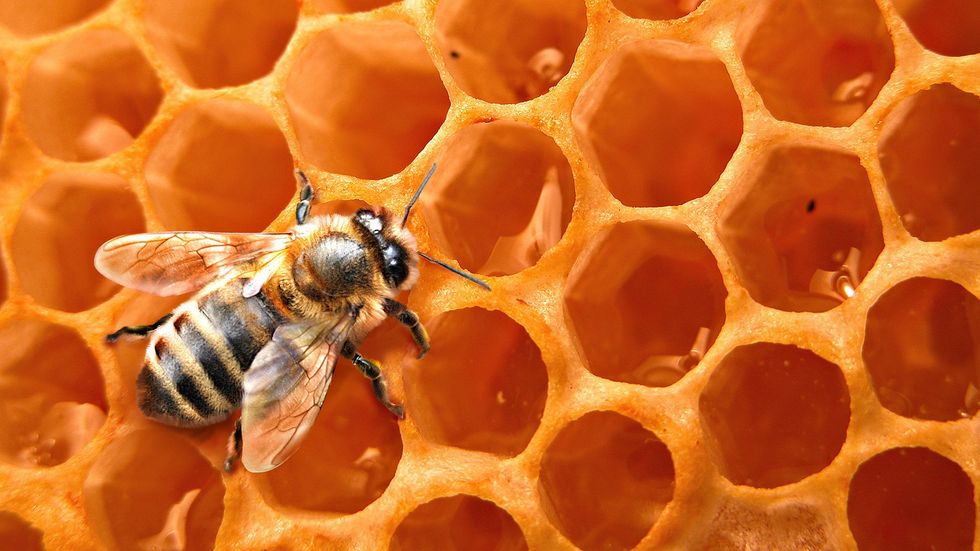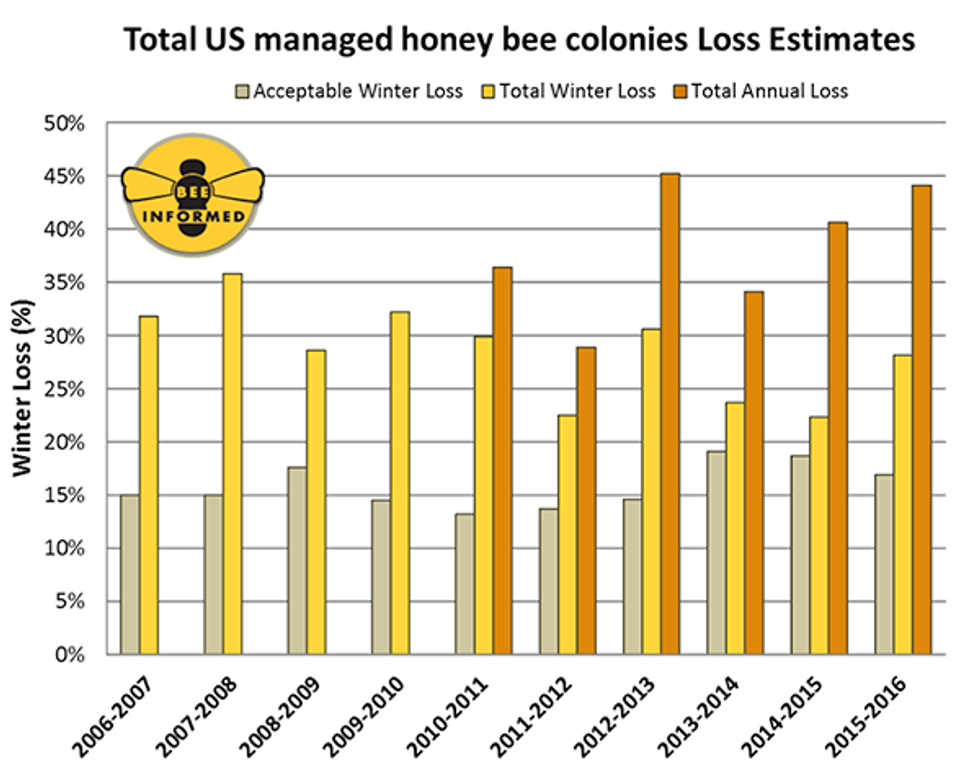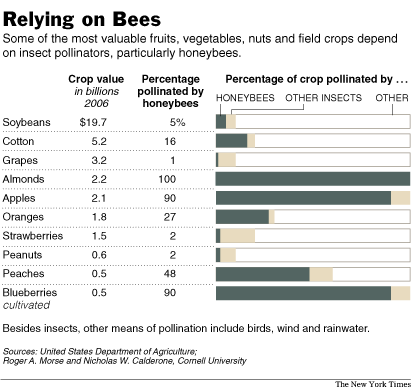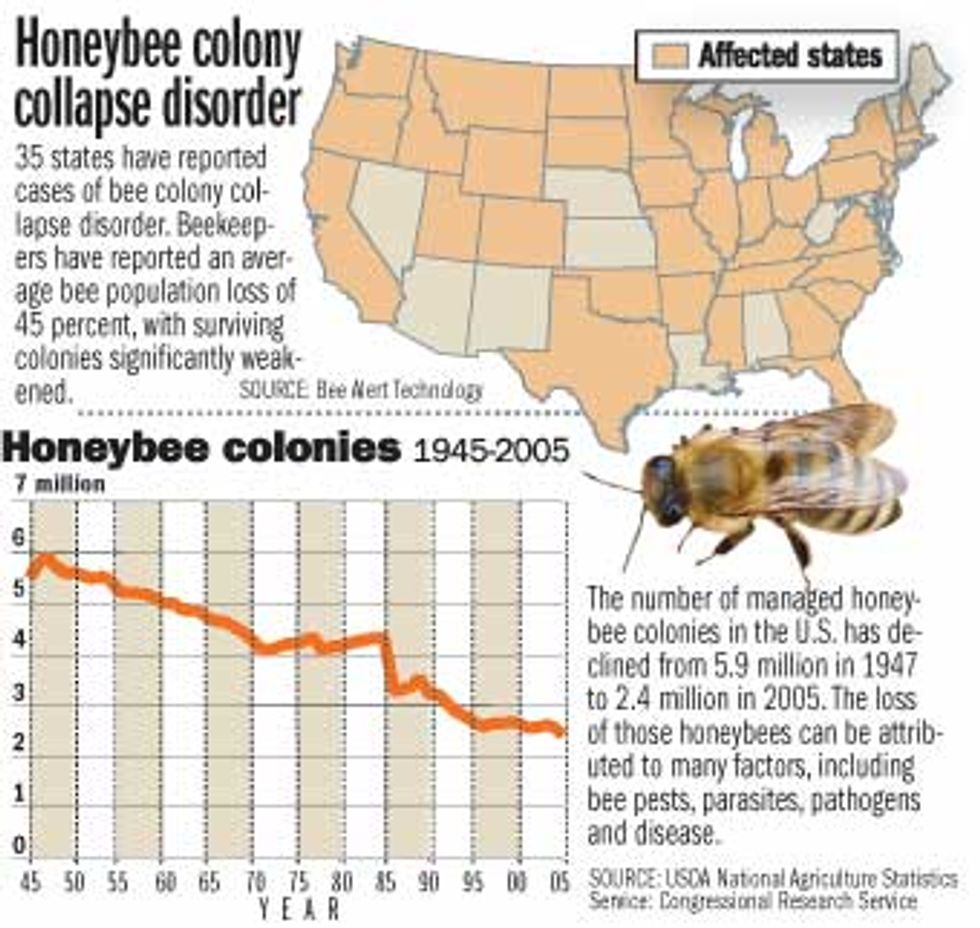Ya know what's scarier than being trapped in a room full of bees? Being stuck in a world without them.
The honey bee: everyone’s favorite thing to dress their unamused dog as, and the little buggers that are responsible for the pollination of 1/3 of the food you put in your mouth. Though, for how much longer?
Honey bees, and more importantly, all bees are in serious trouble. In the past 6 months, the yellow-faced bee (Native to the Hawaiian Islands) and the bumblebee, both have been placed on the endangered species list, by the U.S. Department of Fish and Wildlife Services.
Starting in 2006, the percent of bees, lost each year, by beekeepers, jumped from an average of 10% to 30%.
If you haven’t realized, there is a problem! Bees are dying off at an unprecedented rate. Which means we humans are in serious trouble. Whether you realize it or not, bees are incredibly important to us. Unless you want to pay $10 for one apple, it is imperative that we do something about the rate of bee deaths.
Bees are the primary pollinators of all major crops eaten by humans. The USDA estimates that bees are responsible for pollinating up to 15 billion dollars in crops every year. Bees pollinate 90% of all flowering crops in the US. If you not familiar with what I’m referring to, it is explained, in depth, in Jerry Seinfeld’s Bee Movie.
While the apple, citrus, asparagus, and olive industry are all dependent on the pollination from bees, the almond industry depends on bee pollination the most. As you can see on the chart below.
When the time for pollination comes, almond farms, in Southern California, truck in 1.4 million bee colonies. These bees perform free pollination for the almond crops. At much faster and more efficient rate than any type of pollination. That’s why the beekeeper industry is a $348 million-dollar industry.
This industry is under threat from colony collapse disorder (CCD), which is the name given to the phenomenon responsible for the decrease in bee numbers. The way CCD works is similar to a horror movie. Bees just slowly start to disappear without a trace. Basically the plot of HBO's, The Leftovers, a beekeeper will usually check on a colony to find an empty hive, expect a few adult works, some larva, and a queen.
These ghost colonies will usually still have nutrient rich honey. Meaning the disappearances are not due to starvation. Though, these ghost colonies will usually be infested with varroa mites, which are a type of parasite, that infect bees. These little parasites would seem like a prime suspect, but there are flaws with this argument.
While these parasites infect all bees, the bee larvae are the ones effect the most. Larvae do not have the immunities and strength that adult bees have. Therefore, this does not explain the sudden deaths of adult worker bees. Also, there are healthy colonies that are infected with varroa mites that have not succumb to CCD. This leads most entomologist to believe that varroa mites are just one of the contributing factors to CCD.
Since the hives that undergo CCD are almost always completely devoid of any dead bee bodies, it can be correctly assumed most of the worker bees die while away from the hive. This leads us to our next suspect.
The U.S. uses over 1 billion pounds of pesticides each year. With this knowledge, it is no surprise that entomologist, from a number of different Universities, have found over 150 different chemical residues in bee hives.
While many it is believed many types of pesticides are responsible for the death of bees. One type of pesticide, in particular, neonicotinoid pesticides, are believed to be the most dangerous. Neonicotinoid pesticides are nicotine-based. These pesticides are usually systemic. Meaning they are embedded into the seed of the crop, rather than being sprayed on it. Systemic pesticides to degrade much more slowly, allowing for a build up of pesticides in the pollen of crops.
These neonicotinoid pesticides, ultimately weaken and lead to the death of numerous worker bees. A study by the scientific journal showed that bees exposed to even small dosages of neonicotinoid pesticides were 3x more likely to die while away from the hive. This is because the pesticides hinder's the bees ability to navigate correctly.
Another incident happened in 2016, in South Carolina. Over 3 million honey bees were killed by pesticides meant to kill zika carrying mosquitoes. This devastated local beekeepers and the local bee population.
What you must understand is beehives work a lot like a business. Yes, bees typically don't embezzle honey, but the framework is still the same. You need all the employees doing their part. If the entire workforce goes on strike, the system is going to collapse. But in the case of a beehive, the workers didn't go on strike. They all dropped dead, while on the job, from poisoning.
So what's the solution?
Well, the answer isn't that simple.
In order to meet the demands required of them, farmers must mass produce their products. This makes them extremely dependent on pesticides to protect and get the most out of their crops. The thing with pesticides is, they kill. That's precisely what they are designed to do. It is hard to create pesticides that only kill a specific insect species.
But, it can be done. Scientists just do not have the money nor the drive to create such pesticides. And that is mainly to do with the fact that there isn't much public interest in the decrease of bee populations.
Which is troubling. Because there really should be! People need to have more interest in this topic because if not your grocery budget is going to become your car budget.
People at home can also help. By planting flowers that have a high pollen yield such as lilacs. Also if you must use pesticides try to use organic pesticides that do not have long-term effects on the areas they affect.
So next time you see a bee land near you. Instead of squishing the little guy. Congratulate it on surviving the harmful effects, of over 150 different, pesticides on the daily.























